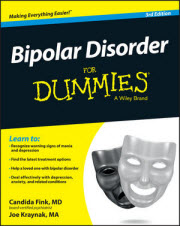January 3, 2010
I teach fourth grade and a few weeks ago in school one of my students approached me with a question, well, more of an observation. He looked at me thoughtful and said, “Remember when we were talking about the book, All Kinds of Minds and you told us that it is hard for you to pay attention and sit still sometimes?” I nodded. “Well,” he continued, “to me, you seem really calm.”
I couldn’t very well talk to him about the handful of medications I take everyday to keep me grounded and focused, or that the reason I was out for a week in the fall was because I had been hospitalized, or that I crawl out of my skin when I have to sit still for more that 20 minutes – so I just smiled and said, “Thanks, honey. I work very hard at it.” Which is true.
Over the last couple days, I have been called calm several times by various members of my family. Again, I smile and say thank you. But the reality is I don’t take this “compliment” well. I hate calm. What’s so great about still waters? They say they run deep, but what’s so good about that? These still, calm waters are churning beneath the surface at all times.
Yes, I am calm and together on the surface, but you have NO idea how hard it is for me to keep my head above the water. The slightest setback grabs at my ankles and pulls me down. I thrash, kicking and pumping my arms briefly, but then give in, because I know it is no use. I am anchored to the bottom of the ocean, buckling beneath the unseen weight of the water.
Sometimes the length of the chain that holds me down is longer than at others. Sometimes I can see glimpses of the sunlight above and when I am finally freed, it takes only a few seconds to reach the top and break though the surface. I gasp for air and life goes on. But other times I am pulled down and anchored so close to the bottom that there is not even a hint of light. It’s dark and heavy and I can barely breathe. It hurts to move. So I lie very still and wait for the powers that be to cut through the chain and release me from my captor. And even then it takes all of my energy to pull myself back up to that calm surface. When I get there, despite my relief at having survived, I am so tired.
Sinking often seems like it would be much easier then trying to stay on top because I don’t know how to float. I have never known how to float. So I am forced to tread water just to keep my head above water. And even though the sights are often beautiful up there, I know my time will be short-lived. Soon I will sink again out of frustration or fatigue or sadness or pain, or I will simply be violently yanked downward by a force that I do not understand. And I worry a lot that one day it will all be too much and I will be too tired to do it all over again.

You should be so proud you are managing to teach that is a really hard profession (I know I tried to be a primary teacher and failed due to bipolar),
Would you be coping better if you worked part time or does working help you cope?
I am assuming you see a therapist regularly but otherwise that could help too.